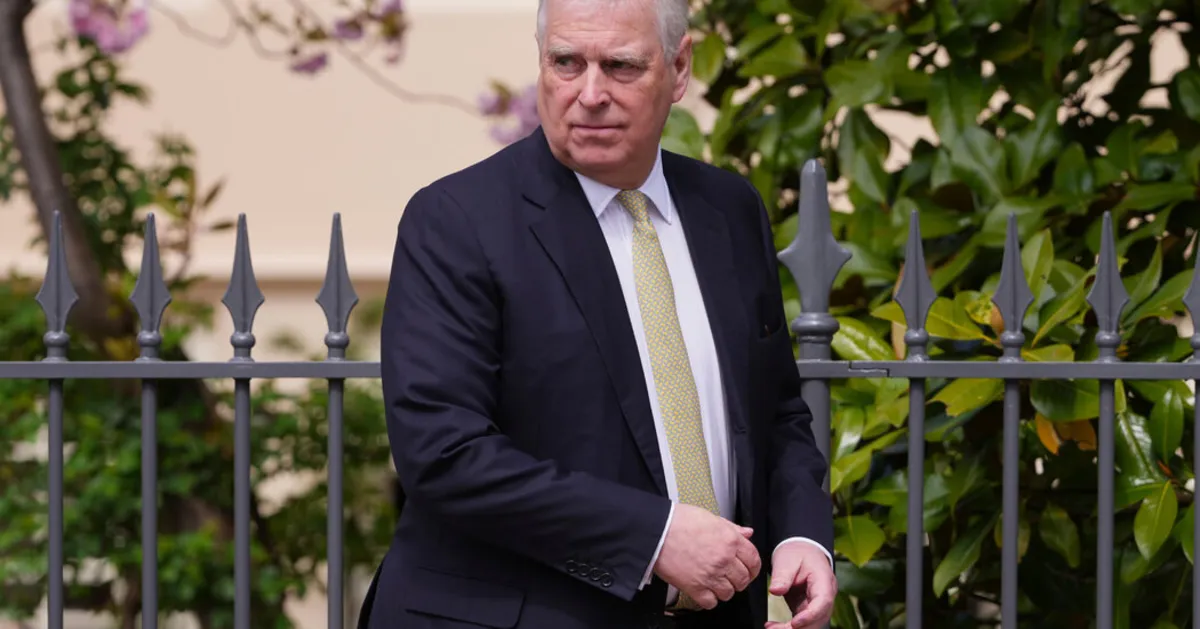
On Friday, Prince Andrew issued a succinct statement announcing that he would cease using his title, the Duke of York. This decision appears to be a significant attempt to distance himself from a scandal that has plagued the British royal family for nearly a decade. However, this move may simply represent another chapter in a long saga of controversy surrounding the prince.
As new allegations and sordid details about his connections to the convicted sex offender Jeffrey Epstein continue to emerge, the royal family has systematically stripped away the facade surrounding Andrew. In 2019, he was effectively banished from public life, followed by the loss of his honorary military titles and the prestigious honorific “His Royal Highness” in 2022. The loss of the Duke of York title is particularly painful for Andrew, as it has historical significance dating back to the 14th century, typically bestowed upon the second sons of monarchs. This title has been a crucial part of Andrew’s identity, marking his transition from a celebrated war hero to a man now living in isolation at his home on the Windsor estate, located west of London.
Despite still being a prince by virtue of his lineage as the son of Queen Elizabeth II, Andrew’s reputation has suffered immensely. Buckingham Palace has made it clear that he is not welcome at family gatherings, underscoring the increasing pressure on the monarchy to distance itself from Andrew. Historian Ed Owens explained that the monarchy’s decision to further downgrade Andrew’s royal status stems from a growing concern about public support for the institution itself.
The past week was particularly damaging for Andrew, especially with the release of a memoir by Virginia Roberts Giuffre, a victim of Epstein’s sex-trafficking ring. In her book, titled “Nobody’s Girl,” Giuffre alleges that Andrew raped her when she was a teenager, a claim he vehemently denies. Despite Giuffre’s tragic suicide in April, her memoir is set to shed new light on Andrew’s past, prompting renewed public outrage. In one excerpt, Giuffre described a disturbing encounter with Andrew, detailing intimate and inappropriate behavior. Her family has since hailed Andrew's decision to relinquish his title as a “vindication for our sister and survivors everywhere.”
In addition to Giuffre’s allegations, new revelations have surfaced regarding Andrew’s ongoing association with Epstein. Reports from British newspapers indicate that Andrew sent a reassuring email to Epstein in 2011, despite claiming in a 2019 BBC interview that he had severed ties with him. This correspondence, published by The Mail on Sunday and The Sun, has further tarnished Andrew’s credibility.
Moreover, Andrew has been implicated in a separate scandal involving Chinese spying efforts in Britain. Reports suggest that he met multiple times with Cai Qi, a senior Chinese official closely linked to President Xi Jinping. This connection has raised eyebrows, especially as it has been tied to a larger political controversy involving British officials. Compounding his woes, a British immigration court recently barred a close associate of Andrew’s from entering the country on national security grounds, drawing further negative attention to his already diminished status.
As events unfold, it is clear that Andrew’s past associations and the ongoing fallout from his scandal are having a significant impact on the monarchy. The institution faces declining public support, with a recent poll indicating that only 54 percent of respondents believe it is important for Britain to maintain a monarchy, down from 86 percent in 1983. Owens argues that the monarchy’s latest actions against Andrew reflect an acute awareness of this diminishing support, raising questions about how the royal family will address other pressing concerns, such as the transparency of royal finances.